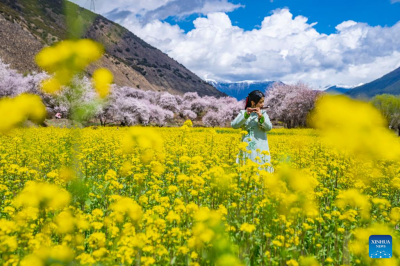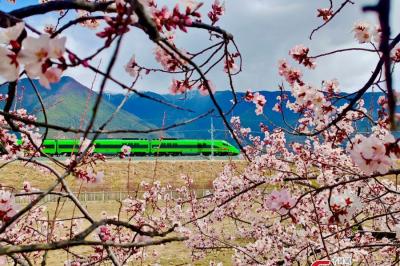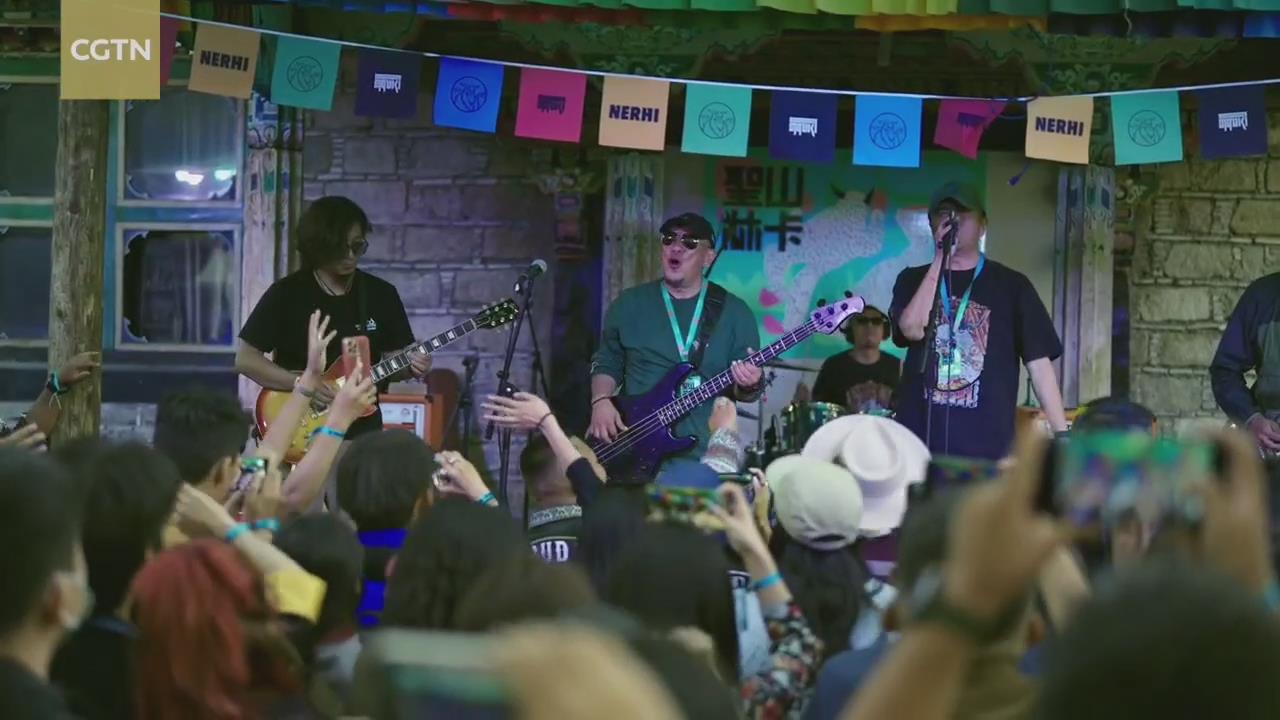| Apr. 3, 2019 -- For Dorlma, going to school has taken her far from home.
“We'll take the school bus home, about one day and night,” Dorlma, a high school senior in Lhasa, capital of southwest China's Tibet Autonomous Region, told CGTN. This 20-year-old girl is among thousands who attend a high school in Ngari Prefecture some 1,500 kilometers away from Lhasa, or a journey about 25 hours by bus. In 2016, the Chinese government decided to move students out of extreme and remote areas of Ngari Prefecture to Lhasa, as part of the government's effort to encourage rural students to attend boarding schools, all expenses paid. Some 1,600 students, all from the western Tibet prefecture, attend this sprawling high school. There are three other campuses just like it, and officials plan to build at least two more. "I like my life on campus," said Dorlma, adding the life here suits her. Life-changing When Dorlma was born, rural Tibet was still suffering from a severe shortage of workers. Most parents have to leave their kids at home to tend their farms. China's one child policy did not affect the Tibetan region, and devout Buddhists sent at least one of their children to monasteries. Some also arranged apprenticeships at private workshops. Since 1984, the central government exempted tuition fees and offered free accommodation for students from schools at all levels, including primary and high school. It was a life-changing policy for thousands of people who would have remained shepherds for life, and a big move in a regional education drive seen crucial to the autonomous region's development. Since 2012, the region has led the country in education by providing 15 years of free schooling to schools at all levels including kindergarten and senior high school. In other parts of the country, children receive only nine years of free education. Figures improved on policy boost The student enrollment rate was 99.5 percent at the primary level, 99.51 percent in middle school, 82.25 percent in senior high school and 39.18 percent in colleges and universities, according to a report released by the local government. |
- Home
- News Tibet |Exclusive |China |World |Related News |Latest
- Documents White Papers |Others
- Photo Politics |Economy & Society |Culture & Religion |Human & Nature |Beautiful Tibet |Other Tibetan-Inhabited Area |Exchanges |Related
- Video News |Documentary |Micro-Video |Entertainment
- Art
- Tourism
- In Focus
- About Tibet






